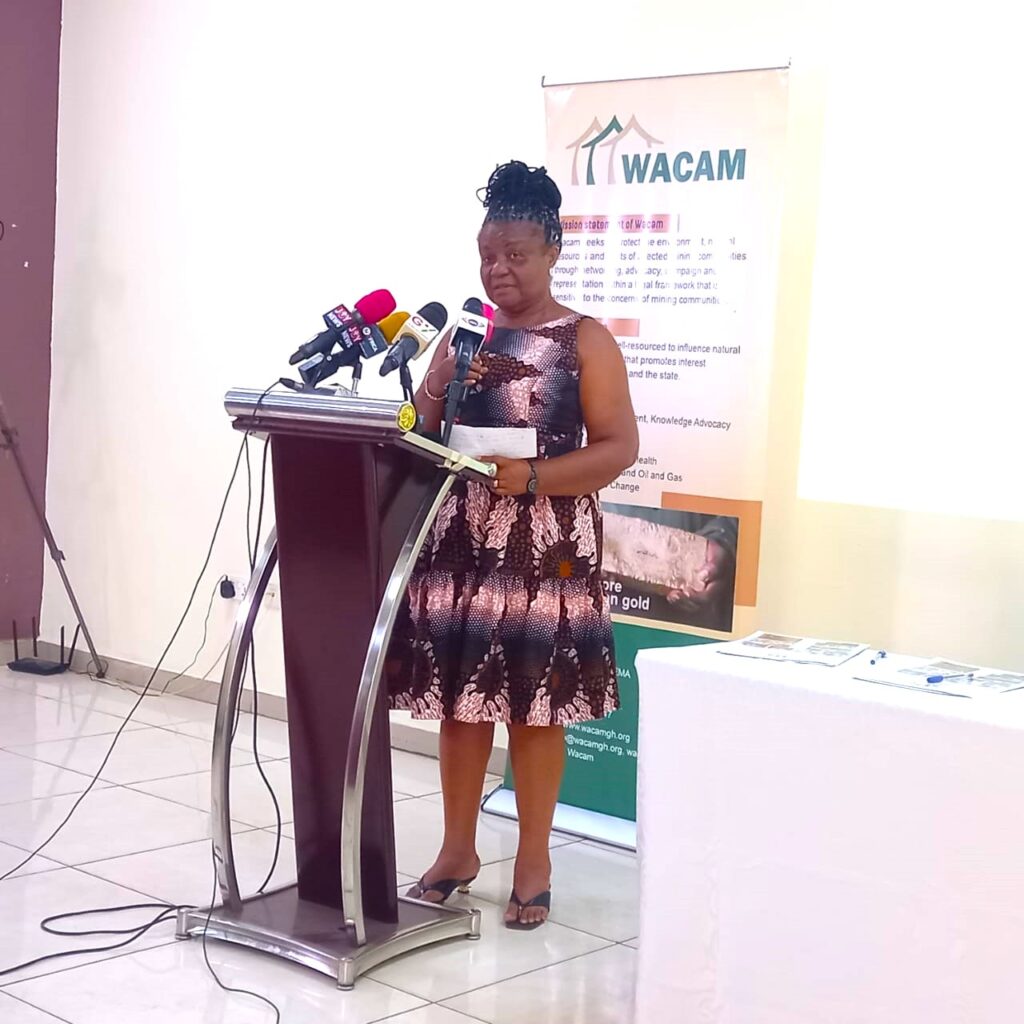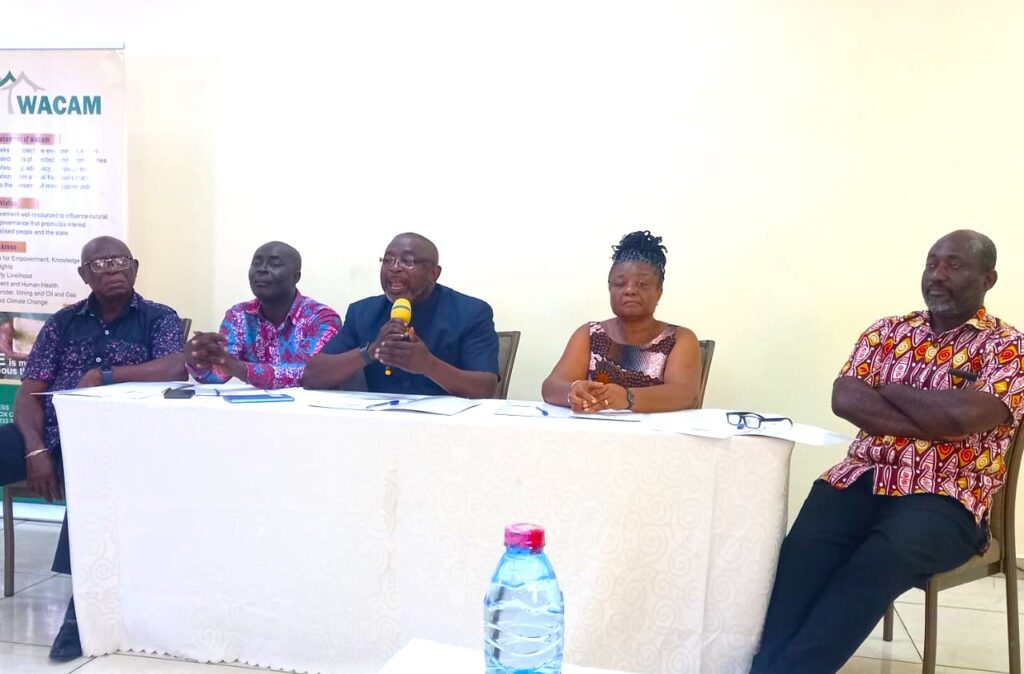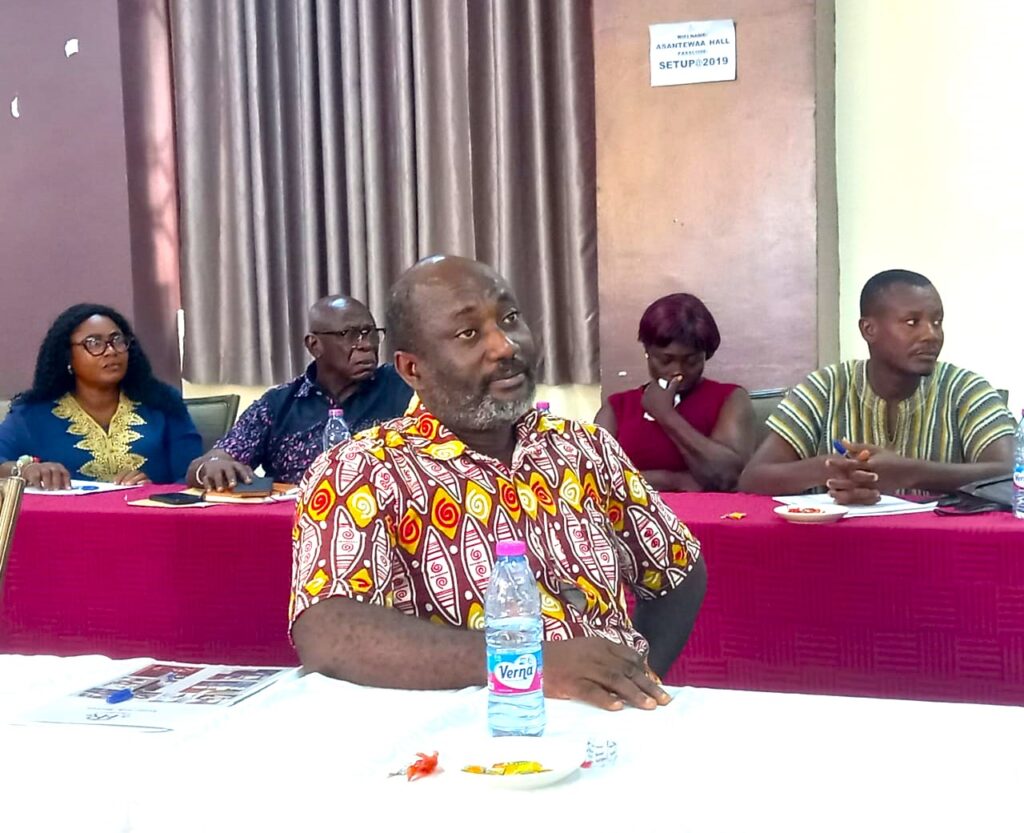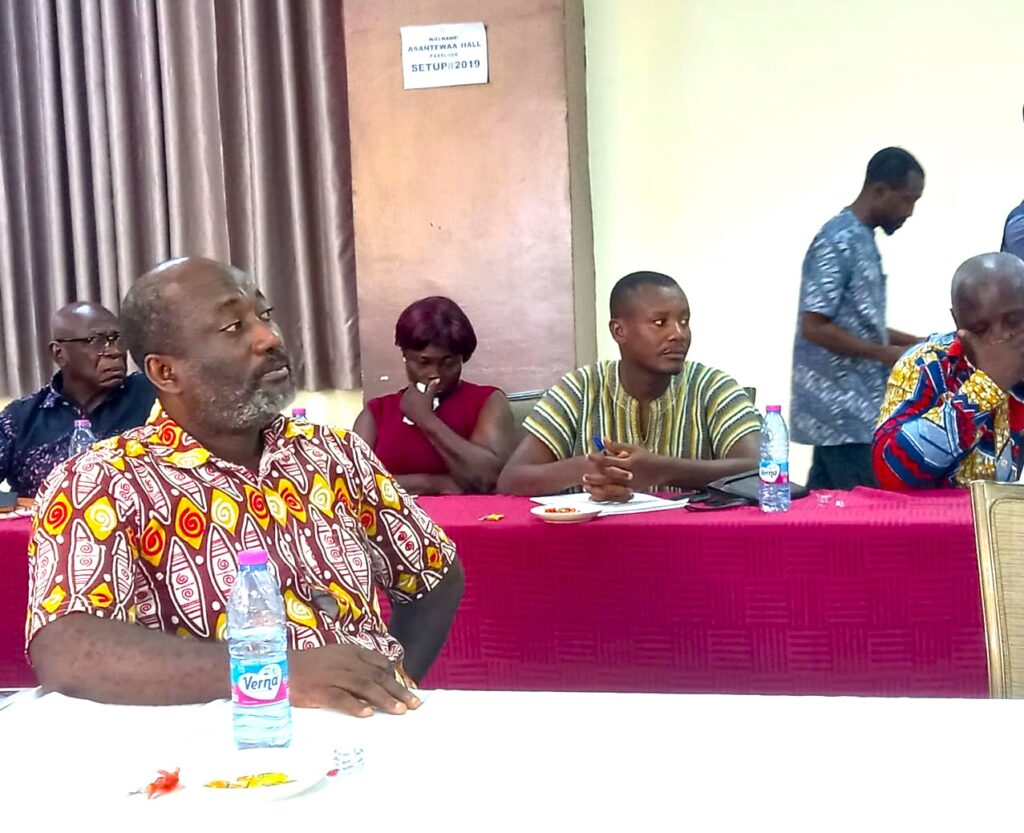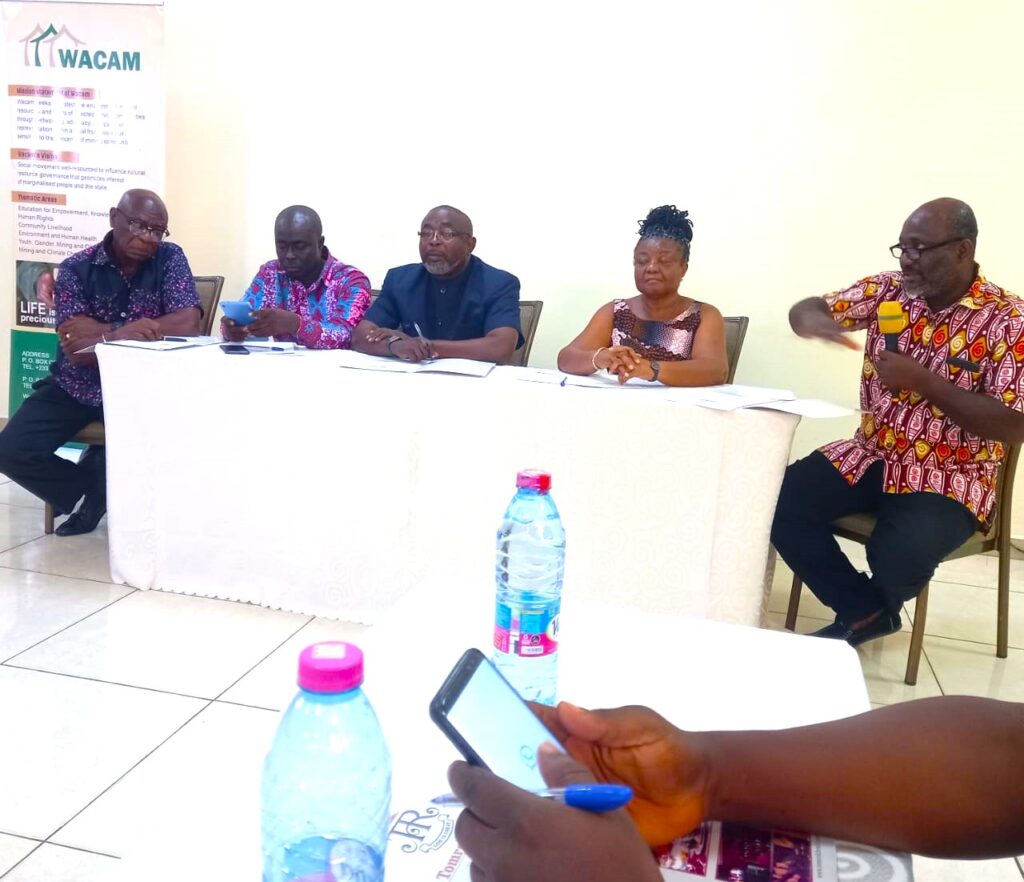Environmental Advocates Wacam, which has been at the forefront of environmental concerns and human rights advocacy, on Friday marked the One-Year Anniversary of the Appiatse Dynamite explosions that claimed 16 lives in Bogoso in the Prestea Huni Valley Municipality of the Western region.
Exactly a year today, Ghana recorded one of the most devastating disasters where a truck carrying some mining explosives blasted at Appiatse.
The disaster, which happened a year ago, claimed 16 lives, injured over five hundred people, and destroyed the whole town, making it one of the worst explosion disasters recorded in the history of Ghana.
Wacam also used the event, which was held at the Tomreik Hotel in Accra to engage the Ghana media as it launched its own fact-finding research report on the Appiatse explosion.
The Wacam Research team were:
Hannah Owusu-Koranteng
Dr Samuel Obiri
Dr Emmanuel Yamoah Tenkorang
Augustine Niber
Daniel Owusu-Koranteng
The Executive Director of Wacam Mr. Daniel Owusu-Koranteng berated the government over the lack of transparency, particularly in relation to the report of the Governments Fact-Finding Committee on the Appiatse disaster which he lamented had been hidden from Ghanaians and the general public.
It would be recalled that the government when the Appiatse incident happened, set up a Fact Finding Committee to investigate the circumstances surrounding the explosion.
“It is important that we use the Appiatse Explosion to look at the weaknesses in our mining regulations, enforcement lapses, and the strength of our laws to hold the state to address the negative effects of the mining companies.
We should ensure that the Appiatse Explosion is not treated as one of the serious occurrences relating to public safety in our country that are met with heightened enthusiasm but easily die off with time,” he said.
Mr. Owusu Koranteng, quoted the Minister for Lands and Natural Resources, Hon. Samuel Abu Jinapor stated among other things, “What I have been interested in as the Minister responsible for Lands and Natural Resources and for that matter mining, is whether or not, the regulatory regime of the mining as it relates to explosive was adhered to or not”.
He noted that the issue of regulatory enforcement in the mining sector is an important area of public concern because of the negative effects of mining on the environment, communities, and society.
“Sometimes people who live far away from the place of active surface mining operations are unable to imagine the environmental issues, human rights abuses, environmental degradation, water, and air pollution, and health issues associated with surface mining. Important among the factors that have promoted the problems associated with surface mining operations had been the weak regulatory framework and the related weak enforcement”.
The Appiatse Explosion Wacam Executive Director stated, has created public awareness that, in situations of weak enforcement, serious accidents that are related to mining operations can occur in areas that are far away from active mining sites.
“In a situation of weak regulatory enforcement in the transport of explosives, what happened in Appiatse could have happened in any part of Ghana”.
Ghana he indicated, has many lessons to learn from the Appiatse Explosion but said the hard question is, have people learned from painful experiences like the Appiatse Explosion?
“I think the majority of people would share my view that, as a nation, we have a culture of bemoaning unpleasant occurrences of public interest for short periods and then failing to take preventive measures to avoid similar occurrences in the future.
What measures are we putting in place to hold the company in the centre of the Explosion responsible for the payment of adequate compensation to the victims for the destruction of their properties including buildings and personal properties, long-term health impacts on victims, loss of livelihood, facilities among others”.
According to him, a critical assessment of the negative effects of the Explosion on the people of Appiatse reveals a different dimension of the impact on the people including but not limited to loss of livelihood of the Community people, Destruction of personal properties, Physical and Economic Displacement, Health Impacts, Facilities (Death), Impact on Education, Social Disorientation, and Dis-agrarianisation.
However, Wacam’s report on the Appiatse Explosion: an analysis of the situation a year on indicated that, although the initial accident, occurred as a result of a motorcycle sliding into a truck carrying explosives which led to an explosion of the truck, the failure of several actors in the chain of transportation of the explosives escalated the impact.
The report stressed that, had the company acquired escorts to the truck carrying the explosives, which is required by law, the explosion may not have happened.
Again, the failure of the company to ensure that the transportation of the explosives was in the company of a competent person, as required by LI 2177, the initial fire which set off the explosives might have been put out, saving the situation.
“In view of the failure of the company to travel with the escort, a question that arises is: was there no police barrier between the point of departure and Appiatse?”
Wacam further stated in the report that, the weakness in the enforcement of requirement by LI 2177 was a major contribution to the accident occurring saying, the provisions of the LI 2177 make it mandatory for vehicles transporting explosives to be marked with a clear red sign indicating EXPLOSIVES and the use of red flags on the vehicle to make vehicles carrying explosive easily identifiable by security agencies and other road users.
“Assuming all these were done on the truck, the Appiatse explosion that has imposed so much pain and suffering could have been prevented”.
The report identified various concerns with the rebuilding of the Appiatse community to normalise life in the community.
This stretch from trauma, loss of livelihoods, loss of properties including homes, loss of lives, social and cultural disorientation of community people, and loss of dignity for the people who are now dependent on the benevolence of others.
